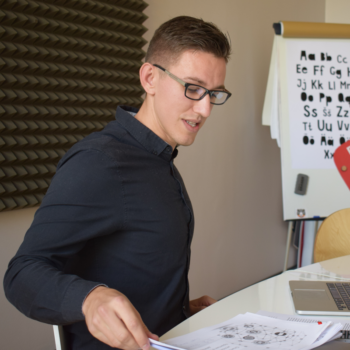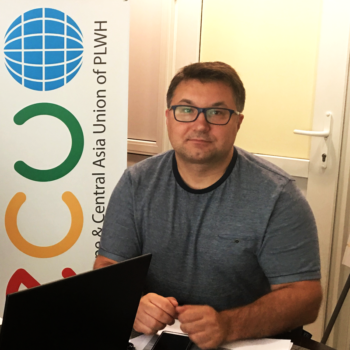On October 5, the activists of country consortia of the regional program Partnership, implemented by East Europe and Central Asia Union of People Living with HIV (ECUO) with support from the Global Fund , took part in the online seminar “Best Practices as a tool for the development of the NGOs capacity: advocacy, communication, finance”.
The seminar was led by Yurii Yorsky, an expert of the regional expert group (REG) of the program “Partnership for equitable access to HIV care continuum in EECA” and an expert on legal matters of the Eurasian Coalition on Male Health (ECOM).
“The value of creating and describing best practices, first and foremost, is to facilitate the exchange of information on effective program approaches and the improvement of standards. The goal of best practice is not to inform other NGOs and donors what should be their normative model for achieving better results in the area of expanding access to the continuum of HIV-related services.
The main objective is to provide NGOs with an overview of successful approaches to problem-solving in the region, using the minimum resources. Best practices allow partners to identify the risks associated with the implementation of the projects that could jeopardize the sustainable development of organizations. Best practices can also be used to develop plans to strengthen the NGOs’ capacity.
 A non-governmental organization, the experience of which was widespread as a best practice, was adapted and used by other organizations, becomes one of the leaders in its region”, – said Yuri Yorksky, a REG expert of the regional program “Partnership”, talking about the role of best practices in the capacity development of non-governmental organizations.
A non-governmental organization, the experience of which was widespread as a best practice, was adapted and used by other organizations, becomes one of the leaders in its region”, – said Yuri Yorksky, a REG expert of the regional program “Partnership”, talking about the role of best practices in the capacity development of non-governmental organizations.
In the framework of the webinar, it was noted that a vision of the existing challenges in the region, and an effective or ineffective experience allows NGOs and donors to identify risks and take them into account when developing a plan for capacity development of the organization. Also, the opportunities that were opened for country organizations and the matter of needs in sharing experiences in the form of best practices (BP) of NGOs were considered, an algorithm for describing BP was considered, drafting materials in accordance with SMART criteria and using “best practices” in the advocacy of non-governmental organizations was considered.
 Andrey Kosinov, ECUO program manager: “The experience exchange and analysis of the activities is a very important stage in NGOs development. This can open up new opportunities and promising areas in advocacy activities, more effectively, of better quality and efficiency. Knowledge of the existing approaches, methods and experiences of others will also enable them to overcome many barriers and achieve their goals faster by an individual activist or non-governmental organization.
Andrey Kosinov, ECUO program manager: “The experience exchange and analysis of the activities is a very important stage in NGOs development. This can open up new opportunities and promising areas in advocacy activities, more effectively, of better quality and efficiency. Knowledge of the existing approaches, methods and experiences of others will also enable them to overcome many barriers and achieve their goals faster by an individual activist or non-governmental organization.
In our regional program “Partnership” we place a great emphasis on the coordination, exchange of experience and the unification of efforts of regional networks, communities, international organizations, because at stake are rather difficult goals that we can consistently achieve together.
One of the successful initiatives/practices is the ECUO strategy for access to innovative drugs in the EECA region”. Over two years ago we started to discuss it with our partners, published a number of documents, and in April, we released a position statement calling on all stakeholders, which caused mixed reviews. But already in July, one after another, international agencies have begun to take decisive steps to expand access to innovative drugs”.
By the end of October, the ECUO collects submissions of best practices of NGOs in the EECA for inclusion in the electronic collection of “best practices on access to treatment”, which will be published on ecuo.org website (section Publications) at the end of 2017.
06.10.2017
